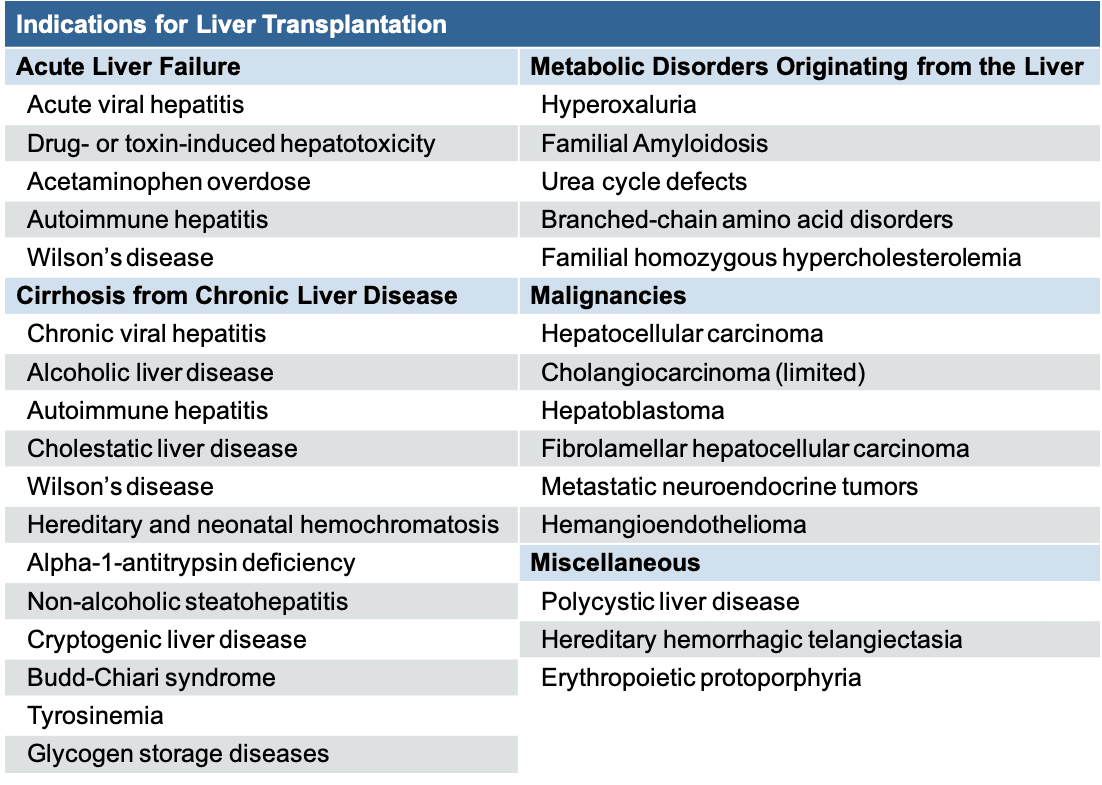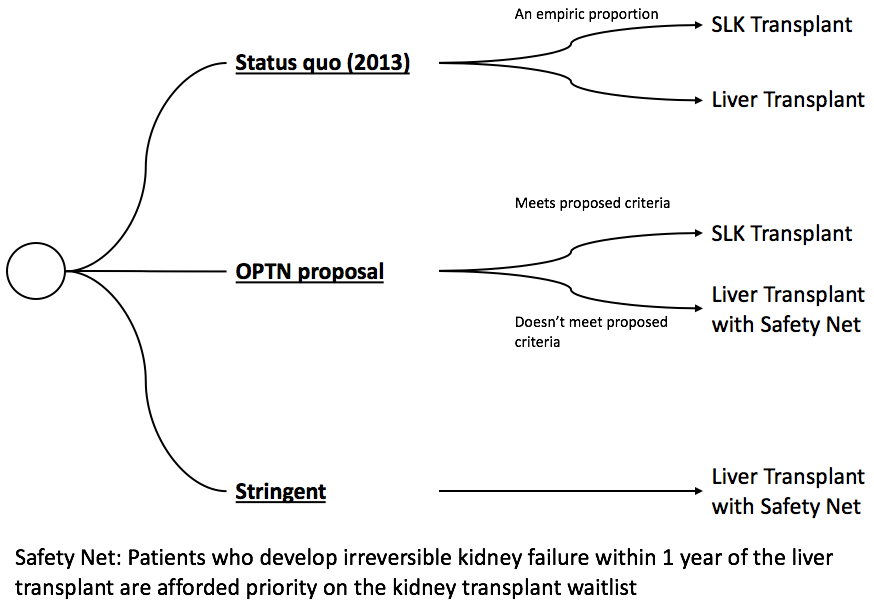In general about 75 of people who undergo a liver transplant for any reason live for at least five years. Criteria for SLK allocation in the setting of CKD in liver patients include i GFR 60 mlmin for 90 days and subsequent GFR 30 mlmin or requirement for dialysis and ii CKD because of metabolic disease that can be corrected with a liver transplant hyperoxaluria atypical haemolytic uraemic syndrome familial nonneuropathic systemic amyloidosis and.
For SLK medical eligibility criteria part of proposal liver transplant programs will need to enter.
Liver kidney transplant criteria. Left Kidney has more a complex vascular anatomy as compared to Right eg. A confirmation of one of three medical diagnoses for receiving a kidney with a liver offer CKD with GFR 60 mLmin for greater than 90 consecutive days. Medical eligibility criteria rules for the allocation of kidneys simultaneously with livers and the establishment of a safety net will provide nephrologists with the framework and authority to decide which liver disease patients truly need a kidney.
The risk of the new policy if it is used as a mandate instead of criteria for minimal eligibility versus its benefit. HIV positivity is a relative contraindication for kidney transplantation. Because the body relies on the liver to metabolize prescription drugs and other substances one of the criteria for kidney transplant is a lack of disorders affecting this vital organ.
Years or older who meets medical necessity criteria for liver transplantation with ANY of the following indications. Months prior to the request for transplant. The Left Kidney is preferentially selected for donation because of long left renal vein.
His research interest focuses on kidney transplant allocation criteria transplantation using kidneys from expanded criteria donors as well as risk stratification using machine learning and multidimensional algorithms integrating antibody-mediated rejection data of kidney allografts and the relationship with graft histological lesions molecular phenotypes and allograft outcome. The lack of medical criteria results in allocation of high quality kidneys to liver candidates who may regain renal function after liver transplant and decreased access for kidney alone candidates who would otherwise be highly prioritized in deceased donor kidney allocation. Some HIV positive patients are eligible for either a deceased or living donor kidney transplant.
Right kidney has only minor renal abnormalities like cyst UPJ obstruction left kidney is. Among selected patients simultaneous liver kidney SLK transplantation provides improved post-transplant graft and patient outcomes compared to liver transplantation LT alone. These include the ethical and medico-legal.
Canadian Society of Transplantation consensus guidelines on eligibility for kidney transplantation. Patient meets criteria for severe acute alcoholic hepatitis with documented failure of treatment andor catastrophic decompensation where 6month- s of abstinence is not realistic AND transplant center has an institutional protocol that requires at a minimum. Selecting a correct donor is essential for liver transplantation.
Kidney injury is frequently seen in patients with end-stage liver disease from cirrhosis and liver failure. We encourage transplant surgeons nephrologists and hepatologists to use the criteria as just thatminimal criteriaand not use the criteria as a mandate that requires that patients with end stage liver disease receive a kidney if they meet criteria. Patients with viral hepatitis cirrhosis of the liver and chronic liver disease are not good candidates for this procedure.
BTSRA Living Donor Kidney Transplantation Guidelines 2018 6 12 Scope of the Guidelines This guidance relates only to living donor kidney transplantation and reflects a growing body of evidence incorporating aspects of clinical practice that are relevant to both adult and paediatric settings. The Right Kidney is selected for donation if. Kidneys are offered for transplantation for a.
Liver transplantation is INVESTIGATIONAL in the following situations. Liver transplant has a good success rate and success usually depends on donor livers. Doctors choose patients for transplant who have no heart or lung issues no active cancers outside of the liver or kidney and no other major health conditions because the immunosuppressive drugs you take to suppress your immune system could cause other medical conditions to worsen.
Combined liver-kidney transplantation may be considered MEDICALLY NECESSARY in patients who qualify for liver transplantation and have advanced irreversible kidney disease. Chronic kidney disease CKD with a measured or calculated glomerular filtration rate GFR 60 mLmin. We conducted the review of the existing literature on SLK transplant criteria and.
Patients with intrahepatic cholangiocarcinoma. These patients must meet the following criteria outlined in the. Kidney acceptance criteria To be accepted onto the transplant waiting list for a kidney a patient would be expected to be alive in five years and to be either on dialysis or starting dialysis within 6 months of joining the waiting list.














No comments:
Post a Comment
Note: Only a member of this blog may post a comment.